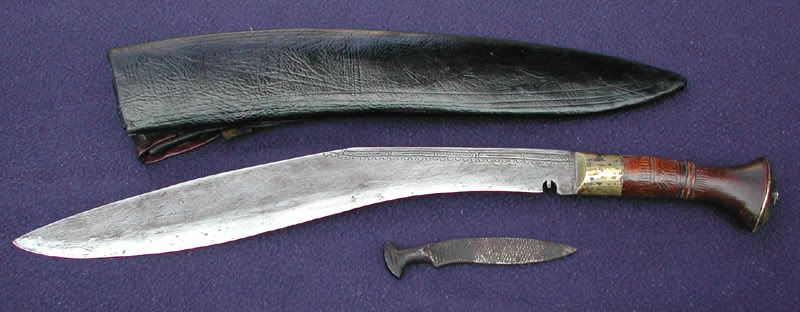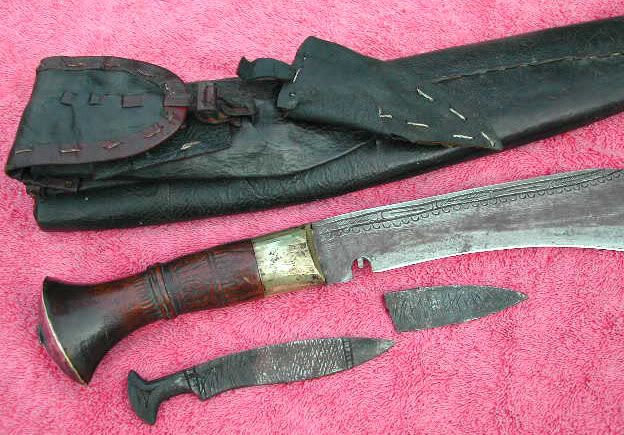
 |
|
|
|
|
#1 |
|
Member
Join Date: Feb 2005
Location: Clearwater, Florida
Posts: 371
|
Thanks for all of the information so far....the design in the blade near the spine is indeed chiseled and from the looks of it was very clean and deep originally, making me suspect that it may be much older than I at first thought as it takes a LOT of cleaning to wear away that much steel.
It's amazing how one piece can sometimes re-open old eyes and make one (me, in this case) re-assess an entire class of weapons with much more respect. Over the years the kukri is one of the few bladed weapons that comes to mind with nearly as much lore and fable surrounding it as the Moro Sanduko Barung. Mike |
|
|

|
|
|
#2 |
|
Member
Join Date: Dec 2004
Location: Kernersville, NC, USA
Posts: 793
|
Nice khukuri Mike. Hopefully John Powell will be along soon, as he is the premier khuk expert. It looks similar to the sirupati, a lighter khukuri. I have one similar to yours. Inside the pocket with a flap may be a removeable pouch. It was used to carry tinder and a flint for starting a fire. The blunt chakma was used to steel the edge of the blade, and also for striking the flint to make a fire. At least this is my understanding.
For some interesting reading, check out the khukuri faq here http://www.himalayan-imports.com/faq/ Here's a pic of mine. It has an interesting all iron chakma.   Edited: I don't think it's a hanshee, as those are most characterised by more curve, and a long narrow curved handle, like the top two here:  (picture belongs to John Powell) (picture belongs to John Powell)Steve |
|
|

|
|
|
#3 |
|
Member
Join Date: Dec 2004
Location: Houston, TX, USA
Posts: 1,254
|
bang! There it is. Note the ferule, too.
The thing about using the chakma to burnish the edge of the sword is that it would have to be at least as hard as that edge, and preferably considerably harder; but is this the case? Kukuris I've sharpened were edge-hardened, and sometimes with a pretty darn hard edge. In any event, I really like the one-piece one; neat 
|
|
|

|
 |
|
|